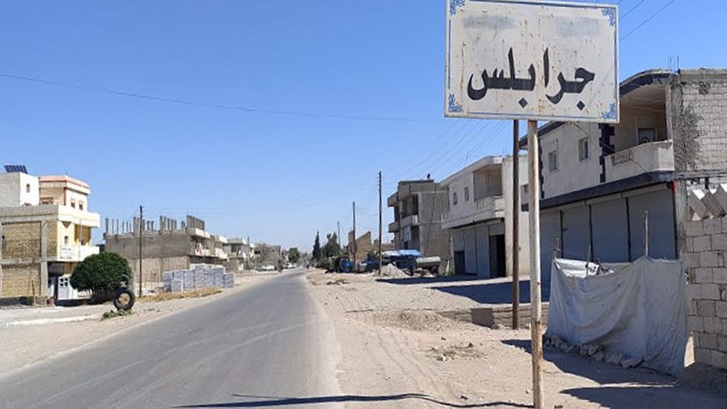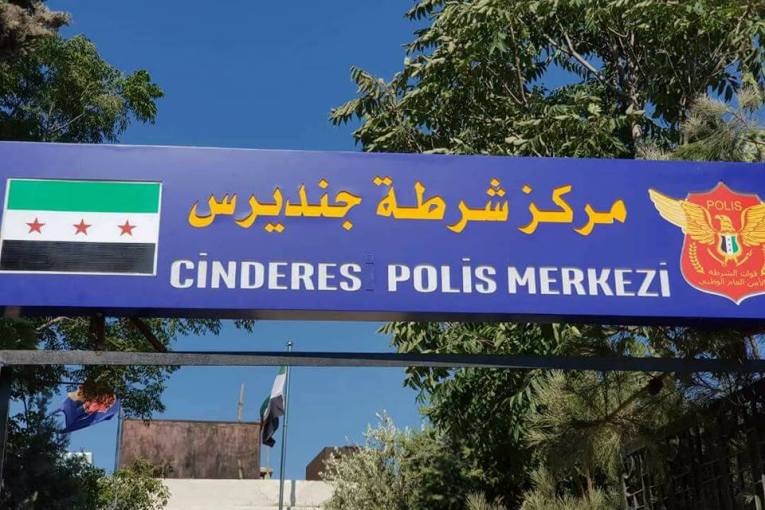
afrinpost – Special
The Turkish-supported military police in the city of Afrin arrested today, a social activist called “Mahmoud al-Dimashqi” on charges of spreading “misleading” information about a leader in the pro-Turkey “Jaish al-Islam” militia.
The Military Police, in a written statement, said that it arrested al-Dimashqi “by a judicial order after publishing false and misleading information and inciting popular, regional and factional strife without evidence, seeking fame and media scoop,” according to its claim.
The militia indicated that “it was confirmed by the competent authorities that what was published about one of the components of the Third Corps militia and one of its leaders is nothing but false news aimed to stir up factional strife and distort the image of the revolution and revolutionaries with the instigation of suspicious parties.”
The social activist Abu Alaa al-Dimashqi had posted a video on social networks “Facebook” in which he indicated that “after hearing the testimonies of witnesses, it is confirmed that a mullah from the shabih, “Qassem Muhammad Qadan,” who is responsible for the detachment checkpoint in the city of Al-Harra in Daraa governorate, and his brother, “Zain Muhammad Qaadan,” are affiliated throughout the years to the revolution and the Syrian regime at the same time” he said.
Al-Dimashqi accused the two brothers of committing the crimes of raping female activists and killing innocent people, inferring that the Syrian regime’s pressure in favor of the two brothers indicates that they are still working with the regime until this moment, according to his claim.
Al-Dimashqi appealed to the “revolutionary institutions” concerned with the necessity of referring Hossam Muhammad al-Qa’dan (known as Abd al-Rahman Nasr), the security official in the Jaish al-Islam militia, to investigate the charges against him, which are (first, harboring the enemy, covering up and protecting it , secondly, misleading public opinion and the competent authorities , thirdly, threatening general security, and fourth, betraying what he called the revolution by not handing over criminals to the judiciary in principle).






